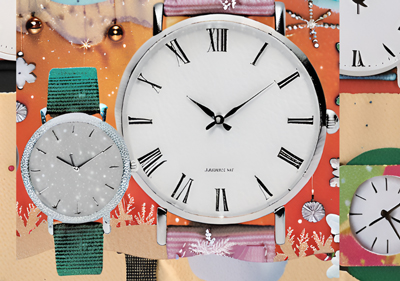Price Matters - How Much to Spend on Gifts
Are expensive gifts always better? How much should you spend? In this article I explore the existing research to figure out how cost affects gift exchange.
Contents
- 1. What Recipients Care About
- 2. Price vs Symbolic Value
- 3. When to Give
- 4. How Much Should You Should Spend
- 5. Recommended Spending
- 6. Summary
Picking the right gift for someone is often a tricky process. For the uninitiated the sheer amount of decisions that go into making gift shopping decisions can be overwhelming. One of which is how much to spend on a gift. You don’t want to go too low and come off as cheap and you don’t want to go too high, putting the recipient in an uncomfortable situation. This is more likely to happen when the relationship is new and there isn’t an established history of gift exchange. Many people feel a certain anxiety about not getting it right, especially because getting it wrong can have an impact on your relationship with the recipient.
The tradition of exchanging gifts isn’t a modern invention. People from different cultures all over the world have been doing it in one form or another as long as human civilization has been around. Various cultures have formed distinctive customs that determine gift choices. These are enforced through social norms.
The same as in every other kind of social engagement, gift giving is bound by some rules that if ignored may lead to unintentional missteps and hurt sentiments. Gift exchange has a language of its own that communicates information about the giver and their intentions to the recipients. How much you spend on a gift matters, and it’s not always as simple as “more is merrier.”
Don’t be worried though. This article will help you navigate these decisions and make the process simpler.
What do Recipients Want
 Perception matters.
Perception matters. Before we delve into the details on how much is appropriate to spend on a gift to someone it’s important to understand what kind of gifts recipients prefer. And while recipients will have different needs and desires, which you should consider when making a choice on what to buy, there are some general rules you can follow that’ll maximize your odds of finding the perfect gift for them.
The existing scientific literature sheds some light on the matter. Following are some findings that can help us understand a recipient’s mindset better.
It shows investment - A good gift should illustrate sacrifice on the giver’s part. It could be financial or time & effort spent.
It’s a luxury - While to some it may seem intuitive to pick practical items as gifts, after all anyone will be happy to get something they can use right? The truth is that practical items don’t feel “giftlike” to the recipient 1. This is why gift stores are filled with seemingly unfeasible gifts that don’t provide much in the form of practicality. My advice is to go for both. Pick an item that is somewhat practical yet leans into the luxury category. A box of exotic chocolate is both “giftlike” and also a luxury item.
It’s appropriate - Social intelligence is even more important than I.Q. in determining one’s success in life. People who lack it end up with broken relationships and can’t function well in social settings. When it comes to giving gifts you have to be aware of how people will perceive it. For instance, giving an oversized dress to a woman might turn you into her mortal enemy.
It surprises them - Picking from a wishlist is fine if your recipient has specifically made that request or if you don’t know them very well, otherwise it’s better to surprise them 2 with a gift of your choice. Especially among romantic partners and close friends, figuring out a gift they will like is a way to test the giver on how well they know the person. Asking outright what they want comes off as lazy and shows unwillingness to put in the effort to guess.
It’s high quality - Recipients prefer items that are obviously expensive - High quality materials, good brand, etc. They prefer high tech gadgets over more conventional gift options. It’s better to pick an item that’s on the top of an inexpensive product category than an item at the bottom of an expensive product category. They considered socks to be unimpressive as they come off as “cheap.”
It’s aesthetically pleasing - You’re more likely to impress your recipient with a gift that is aesthetically pleasing than one that’s not. Presentation matters too. Wrap it up in a decent wrapping paper.
One thing to take away from this is that more important than the price of the gift itself is the recipient’s perception of its value.
Price vs Symbolic Value
 Gifts have a language of their own.
Gifts have a language of their own. It’s the thought that counts or so they say. How much of this is true?
The truth is that it’s not always about how much money you spend on something that makes it a good gift. Expensive gifts don’t always translate into good gifts. Also, research done on the matter suggests that how much a gift costs doesn’t significantly affect how much a person appreciates getting it. Of course, this isn’t the same for different cultures but holds true in the United States.
Research
A Korean study 3 found that there wasn’t a significant correlation between gift price and the level of appreciation regardless of individual differences. The recipients were more appreciative than the giver’s expectations regardless of the price of gifts. They also found that recipients were more grateful when they received tangible products (iPods, gadgets, etc.,) than gift certificates.
Whether your recipient will appreciate the thought behind your gift vs its cost will depend on your relationship with them. When it comes to interpersonal relationships you can get away, and may even benefit, from giving an item that has sentimental value rather than focusing on the price tag. But for distant family, coworkers, casual friends and acquaintances you should factor in the cost and spend the appropriate amount. Same goes for celebrations such as weddings, baby showers, housewarming, etc.
Tip
Higher socio-economic groups are more likely 4 to substitute a lack of effort & time invested with more expensive gifts. If you’re rich and pressed on time, it’s acceptable to just spend more to make up for it.
In a nutshell, the closer you are to your recipient the more effective sentimental gifts will be. If you are not particularly close to someone, stick to social norms to come up with an appropriate amount to spend.
When to Give
 To give or not to give. That's the question.
To give or not to give. That's the question. The nature of gift giving might seem like a voluntary act, and sometimes it can be, but mostly researchers across various fields of study agree that it’s often an obligation.
Gifts are meant to be paid back in form of gifts, ideally matching the cost of the gift received. Among communities there’s an obligation to exchange gifts during certain occasions, such as birthdays, anniversaries, weddings and holidays. Christmas being an important one is the West as it is an excuse to get family members to come together and therefore help maining relationships. This is especially true in modern societies as people tend to move out of their communities and holidays are the only time they get together with relatives.
Here are some general rules on when it’s important to give.
For family members and close friends - Exchange gifts on holidays, birthdays, weddings and anniversaries. Ideally matching the cost of what they spend on their gifts to you.
For casual acquaintances and new friends - Take a gift with you if you’re invited to a party or a celebration, or if they’ve given you a gift before. You can stick to low effort gifts such as flowers, food items, gift cards, etc. And if you’ve never exchanged gifts before there’s no obligation to begin unless you wish to.
Note
If your partner is spending too much on gifts or giving you gifts too often, it could be a result of their insecurities about the relationship.
There’s an obligation on the giver to consider their recipients’ means when picking gifts. Don’t overspend on a gift to someone you’re unsure will be unable to return the favor. It’s rude. And if you receive a gift that will mess up your budget, it’s best to politely refuse it.
How Much Should You Spend on a Gift
 Even economists can't figure it out.
Even economists can't figure it out. Now that you know what makes a good gift, the next step is to figure out what’s the appropriate amount to spend on a gift depending on the context.
There is no universal guideline for this that’s going to work for everyone. The amount is going to vary based on a few factors, which you’ll have to consider before making a decision.
Here are these factors you need to be aware of:
- Your relationship with the recipient.
- Obligation to repay.
- Social norms & customs in your community
- Your budget.
1. Relationship with the Recipient
Close friends and family get the most expensive gifts as compared to others. The more important the person is to you, the more you spend (Within your means). Gifts are signals. The amount of money you spend on a gift for someone signals to them how much you value the relationship. This, of course, is relative to your means. No one should expect you to get into debt just to buy them a gift, and if they do then the relationship is not likely a healthy one.
Exceptions to this are when the recipient is financially dependent on you. Let’s say a mother gives their children an expensive gift. The children are not expected to match the price, rather give something of sentimental value.
2. Obligation to Repay
Whenever you get a gift from someone, it is implied that you must repay with a gift of comparable value to them. There are exceptions to this. For instance, as mentioned above a child giving a gift to their parents doesn’t need to match what their parents spend on their gifts.
Research
The French anthropologist-sociologist Marcel Mauss (1954), presented a theoretical analysis of the gift-giving process, that was based on his examination of gift giving amongst various primitive, secluded, or ancient societies. He concluded that gift giving is a self-perpetuating system of reciprocity and summarized three types of obligations which preserve gift-giving: The obligation to give, the obligation to receive and the obligation to repay. 5
Also, sometimes you can’t put a price on a gift. Men tend to prefer getting handmade items from their girlfriends. In which case the amount of effort and time spent on the gift will matter more than the cost of the raw items.
3. Social Norms & Customs in Your Community
Every community has its own gift exchange norms that the members have to follow. These are unwritten rules that members learn from their parents and peers. The shared rituals and traditions are important in maintaining a healthy community. They reflect on shared values and responsibilities that individuals have.
Gift exchange is a social activity confirming relationships and social interactions. A gift giving community is defined as a social network composed of individuals supporting one another through symbolic gestures. Individuals must maintain their identity as a group member by adhering to the accepted norms within the group. Community members have to maintain their status as members by purchasing quality gifts. Often a community will have a select few websites they use.
Tip
Communities tend to value gift presentation. Ensure that your gift is properly wrapped up. Many large retailers and websites offer gift presentation options on checkout. If you don’t have time to wrap up a gift on your own you can just pay a little extra to get it done.
People don’t want to be embarrassed within their community by giving cheap gifts or those that can’t be returned. Many prefer stores and websites that offer returns for the same reason. Choosing a low quality gift has consequences in a community context. Individuals who fail to give a high quality gift risk diminishing their social status.
When figuring out what’s the appropriate cost of a gift for any occasion, you have to be aware of the social norms within a community. Pay attention to how much others in your group spend.
4. Your Budget
It seems unnecessary to say that you shouldn’t overspend on gifts but often people do. Holidays, especially, can be a source of anxiety for people because it involves buying gifts for many people in their lives.
Ideally you should plan your budget long before the holiday season and plan your spendings and savings accordingly.
You have to consider your spending ability before you decide how much you are going to spend on each gift. You do it by coming up with a total budget first and then allocating an amount for each recipient.
As for how much you should spend, it depends on context. You should consider your gift exchange history with your recipient. If you’re part of a mutual group, consider how much members spend on each other. You also have to consider your own budget and try to not go over it just to impress others.
Research
Gift givers often spend more on presents 6 for wealthy recipients vs their unwealthy counterparts. They’re influenced by their motivation for their gift to be liked by the recipient and are biased towards the belief that a more expensive gift will be more liked. Also, they want to signal to the recipient that they are high status. This also depends on whether they personally like the recipient or not.
I know it’s easier said than done because you want your gift to be liked and meet the expectations of the recipient. Also, if there’s a wealth disparity and they’re used to more expensive gifts, you’ll feel self conscious about your contribution. For what it’s worth, here’s a suggestion. It’s the thought that counts or it should and if your friends will hold it against you if you don’t go out of your way to fit in, you should consider getting new friends.
Recommended Spending
 Math is hard, especially when hurt feelings are involved.
Math is hard, especially when hurt feelings are involved. You need to consider all the factors mentioned above when you decide how much you spend. This will vary for each person based on the context in terms of class, locality, social norms and customs.
If you’re unsure about how to factor all of that into your own budget, following are some general guidelines based on average spending across the U.S.
Holiday Gifts
Common traditions keep a society in order. You can rely on holiday celebrations and festivals to reconnect families and bring them together for a joyful time. Not all families enjoy this and look forward to it but the getting together part is still important. Giving is an important ritual that strengthens bonds 7.
Recommended spending as per recipient:
| Recipient | Amount |
|---|---|
| Spouse | $100 |
| Parents | $75 - $100 |
| Siblings | $50 |
| Kids | $75 |
| Friends | $15 - $25 |
Wedding Gifts
It’s their special day and a gift is expected. In general it’s recommended that you spend on a gift that’s equivalent to the price per head for attendees. It’s usually around $100. This will vary according to your relationship to the bride.
Recommended spending based on relationship with the recipient:
| Relationship | Amount |
|---|---|
| Family | $75 - $150 |
| Friends, coworkers | $75 - $100 |
| Extended family | $75 - $100 |
| Acquaintances | $50 |
Birthday Gifts
Everyone feels special on their birthday. It’s the one day that society has made certain you’ll get attention from everyone you know. It also gives people an excuse to call up and wish people who they don’t usually get to connect with.
Here’s a general suggestion on how much to spend on birthday gifts.
| Relationship | Amount |
|---|---|
| Family & Close Friends | $25 - $40 |
| Acquaintances, Extended family | $15 - $25 |
| Coworkers | $15 - $20 |
| Your Kid | $100 |
| Not Your Kid | $25 - $50 |
Other Occasions
For special occasions and celebrations such as bar mitzvahs, baptisms, Quinceañera, etc., what’s appropriate may vary. It’s best to talk to a friend who knows or find one that fits your budget.
Tips on Saving Money on Holiday Gifts
 Recipients value time & effort you put into your gift.
Recipients value time & effort you put into your gift. Giving is an integral part of any functioning society. Cultures all across the world in history have partook in some form of seemingly voluntary exchange of goods to maintain relationships. It is important to share and exchanging gifts is a way to do it.
While I don’t recommend spending money on extravagant gifts for those who can’t afford to, you shouldn’t avoid spending money on gifts if you have the means. Ideally you plan ahead your budget and save up money for this. Giving is more of an obligation than a voluntary one.
Recipients prefer high quality gifts and you shouldn’t compromise on quality. Don’t equate quality with price though. Even high quality items with a low price tag will do.
There are ways to save money on gifts while still impressing your recipient. Following are some suggestions on how to do so.
Go for top tier products - Go for high end items in an inexpensive product category rather than a bottom end product in an expensive one. It’s better to give a high quality t-shirt than a basic gadget that costs much more.
Create your own - DIY gifts can be effective. They show effort on the giver’s part and feel personal to the recipient. You can design your own products with free graphics and custom text on sites such as Redbubble & Teespring to avoid the middleman fee.
Buy Gift Boxes - More is merrier. Instead of a single expensive item go for a gift box which costs less but still will impress your recipient because of the sheer amount of items they’ll get. For instance, a reader gift box will delight anyone who is a reader.
Go for heavy items - We perceive stuff that weighs more to be better quality than those who weigh less. You can compensate for the lower price tag by picking an item that feels heavier. Giving someone a hardcopy of a book is better than giving them a paperback as a gift.
Make use of Deals - Look out for holiday sales to get your money’s worth. You’ll find plenty of good deals on NYTimes’ Wirecutter. This will help you find quality products at a discounted price.
Add sentimental value to your gift - Recipients, especially people who are close to you, will not care about the cost of the gift 8 if it has some sentimental value to them.
Opt in for group gifts - Pitch in with your friends to buy a gift together. So instead of several inexpensive gifts you get to give them an expensive item that they want to own. It could be the new playstation or anything they couldn’t or wouldn’t buy on their own.
Note
Trying to save money on gift shopping is okay, especially if you’re on a tight budget. But don’t compromise on quality. Your gift signals to your recipient about who you are and how you feel about them. This is irrelevant to the actual cost of the item itself rather the quality of it.
Summary
Here’s a quick summary of the article to help you remember the important stuff.
Giving is bound by rules which, if ignored, may lead to damage to relationships and social cohesion among group members.
Recipients want high quality items as gifts. Quality of a gift doesn’t always correlate with its price.
Exchanging gifts is less of a voluntary act and more of a social obligation. We give gifts to form and maintain relationships. You should always repay someone who has given you a gift with a gift.
Social events such as birthdays, weddings, Christmas dinners, etc., are vital to maintaining ties with your community. Exchanging gifts with each other is a signal of commitment.
When giving presents to family members and close friends, match the cost of their gift to you or base it on your history of exchange.
It’s acceptable to give low effort gifts to casual acquaintances and new friends. Trying too hard to impress with thoughtful gifts to someone you ‘re not close to comes off as needy. Give flowers, food items, gift cards, etc.
When considering how much to spend on a gift for a recipient you have to consider a few factors such as your relationship with them, your obligations (If you owe them a gift), social norms within your group and your own budget.
It’s good to plan in advance and save for holiday gift shopping. Plan your monthly budget accordingly.
You can be creative when trying to save money on gift shopping. There are ways to make a gift seem more valuable than it to the recipient. Also effort can make up for cost if you have a close relationship with your recipient.
Frequently Asked Questions
Is it necessary for a gift to be expensive to be appreciated?
No. Recipients care more about other qualities in a gift, such as time and efforts invested in it, sentimental value, its quality and thoughtfulness. Wealthy people tend to buy expensive gifts to make up for the lack of investment in time and effort. Read More
Is the price of a gift important?
It doesn’t matter if the gift is for someone close to you. They’ll care much more about the symbolic value of it over the cost. For others, it’s important to pick a gift that’s of expected value. Read More
How much money should you spend on a gift for someone?
It depends on the context. You should consider your relationship with the recipient, how much they spent on a gift for you, social norms in your group and your own budget. Read More
Article Sources
1. Camerer, C., 1988. Gifts as economic signals and social symbols. American journal of Sociology, 94, pp.S180-S214.
2. Vanhamme, J., Lindgreen, A. and Beverland, M., 2021. The paradox of surprise - empirical evidence about surprising gifts received and given by close relations. European Journal of Marketing, 55(2), pp.618-646.
3. CHO, E. and BYUN, S., 2020. Will More Expensive Gifts be More Appreciated?. Journal of Distribution Science, 18(1), pp.95-105.
4. Mortelmans, D. and Damen, S., 2001. Attitudes on commercialisation and anti‐commercial reactions on gift‐giving occasions in Belgium. Journal of Consumer Behaviour - An International Research Review, 1(2), pp.156-173.
5. Mayet, C. and Pine, K.J., 2010. The psychology of gift exchange. University of Hertfordshire.
6. Reshadi, F. and Givi, J. (2023), ‘Spending the most on those who need it the least - gift givers buy more expensive gifts for affluent recipients’, European Journal of Marketing, Vol. 57 No. 2, pp. 479-504. https://doi.org/10.1108/EJM-01-2022-0042
7. Kasser, T. and Sheldon, K.M., 2002. What makes for a merry Christmas?. Journal of Happiness Studies, 3(4), pp.313-329.
8. Burgoyne, C.B. and Routh, D.A., 1991. Constraints on the use of money as a gift at Christmas - the role of status and intimacy∗. Journal of Economic Psychology, 12(1), pp.47-69.

Dattaraj Pai
I’m the founder of Science of Gifts, a website dedicated to helping people find meaningful and thoughtful gifts. With years of experience researching the psychology of gift-giving, I explore how gifts communicate emotions, strengthen relationships, and create lasting memories.
Beyond writing about gifts, I have a background in storytelling and filmmaking, which fuels my passion for exploring the cultural impact of meaningful gestures.















